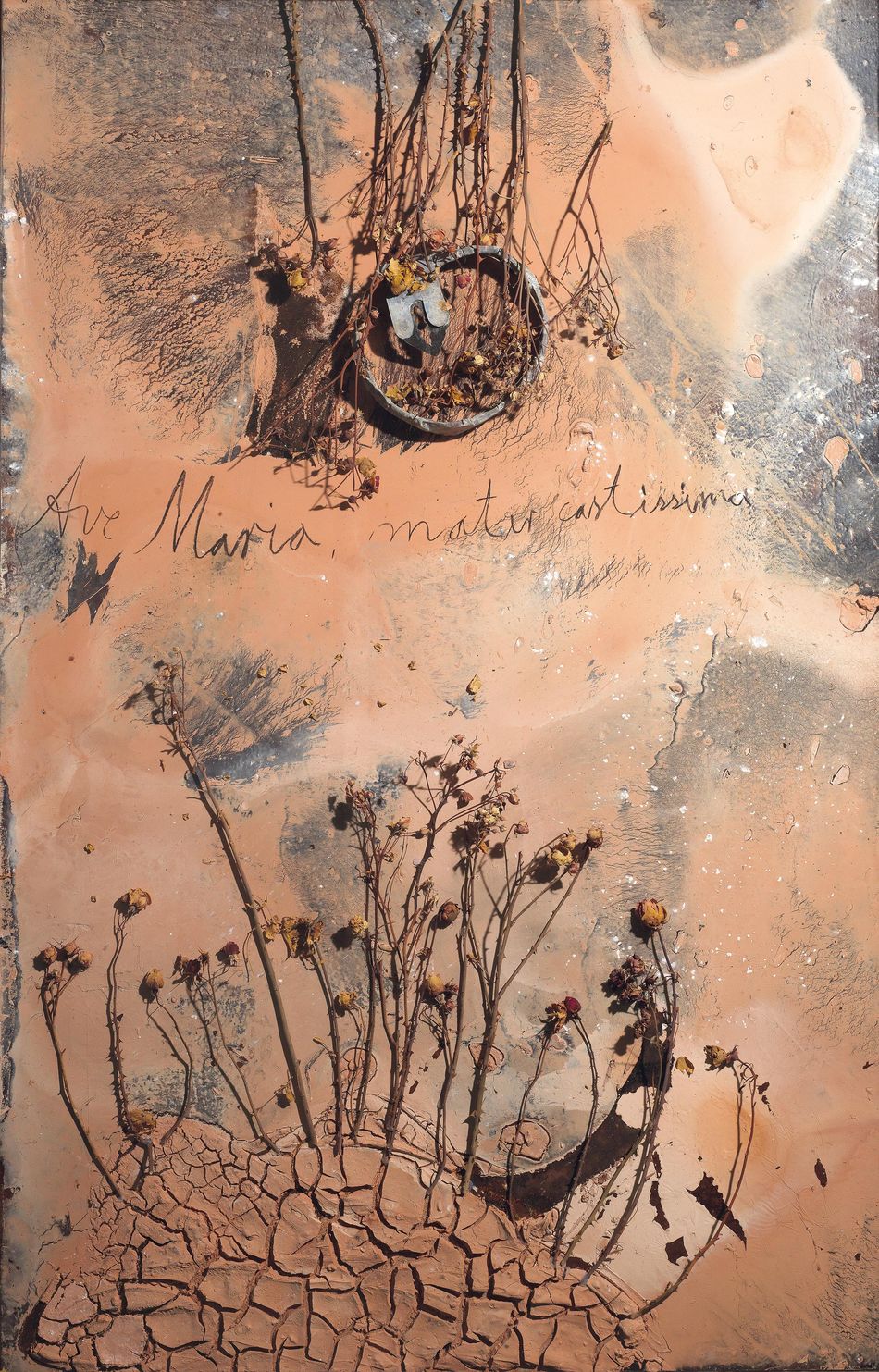

Lot 039
Ave Maria, Mater Castissima
Anselm Kiefer (German, 1945)
2007
Oil, acrylic, shellac, iron, roses, lead, clay and cardboard on plywood, in artist's frame
215 x 141 cm
Estimate
TWD 10,000,000-18,000,000
HKD 2,457,000-4,423,000
USD 314,800-566,600
CNY 2,278,000-4,100,000
Sold Price
TWD 15,000,000
HKD 3,623,188
USD 462,963
CNY 3,363,229
Signature
PROVENANCE
Ravenel,Hong Kong, November 29, 2015,lot 73
Acquired from the above by the present owner
+ OVERVIEW
Influenced by the great German art master Joseph Beuys, Kiefer chose to paint about German history, culture and mythologies, and the terror of Nazi Germany. Indeed, he addresses the past with courage and a clear attitude, quite unlike other artists of the same period who avoided painting about the war, treating it as taboo. Later on, expanding beyond the German themes, Kiefer started to paint about fate and culture in general. Not only were his works a collection of nationalist symbols and memories, they also held mysterious meanings from symbolism, theology, and mysticism.
Kiefer once made the now frequently quoted statement, My biography is Germany's biography. His works are literary, like epic poems. Standing in front of his paintings, one cannot help but to be impressed by the poetry in them - a deep and heavy touch of history penetrates into and resonates in each viewer's heart. He often applies a wide range of materials, such as oil paint, steel, lead, dusts, photosensitive coatings, stones, leaves, photographs, woodcuts, wheat, and petroleum. The large scale of the composition and its mix of materials make his paintings visually impressive. Pieces that represent the ruined, the unconfined, and the fragmented organize themselves into a peaceful, poetic, and magnificent scroll. Although Kiefer produced these works in an unusual time and place, they nonetheless point out common problems. For example, they show that most of us lack something deep down in our spirits; perhaps it is a unique attitude for life, persistence and endurance, the courage to face the world wholeheartedly, or everlasting love. And at the same time, they also lead the viewers to think about heaven and how it may give us hope, console our hearts, and fulfill whatever we are lacking.
The artwork "Ave Maria, Mater Castissima" by Anselm Kiefer is a large-scale piece within his series of paintings depicting the Maria. It extends to a height of over two meters and is adorned with roses, evoking associations with the Catholic devotion to Maria through the "Rosary," a set of prayers dedicated to her. The term "Rosary" originates from the Latin word "Rosarium," meaning "rose wreath" or "a bouquet of roses." In the center of the artwork, there is a metal circular frame resembling the crown of thorns worn by Jesus.
The thorn-bearing roses and dried blocks of pigment below evoke the burning bush from the biblical book of Exodus, where Moses encounters the presence of God through a bush that burns but is not consumed. This imagery signifies God's presence alongside Moses in the wilderness. Similarly, just as the thorn-bearing bush remains unconsumed by the flames, Maria conceives Christ while maintaining her virginity.
"Ave Maria, Mater Castissima" is also a metaphor for Kiefer's own artistic journey. His art endeavors to extract metaphysical miracles from raw elemental materials, composing a powerful hymn full of creativity and generative power.
Modern & Contemporary Art
Ravenel Spring Auction 2024 Taipei
Sunday, June 2, 2024, 2:00pm
